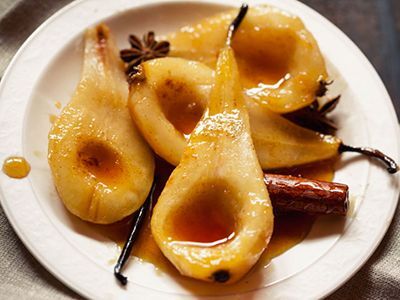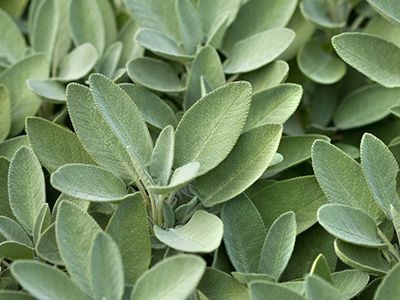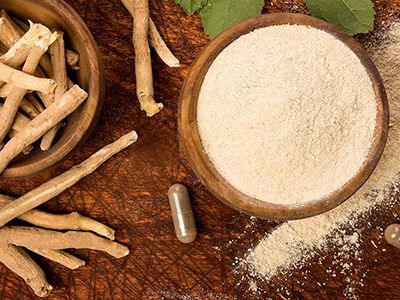Holistic Strategies for Cold & Flu Season
authored by Taylor Appel, Registered Herbalist (AHG)

As autumn changes to fall, and fall into winter, the days become shorter, the air becomes colder, and the leaves fall to the ground to decompose. Just as nature moves through seasonal changes, so too do our bodies. This is a time when we can turn inward to regain our strength through practices that ground and nourish us. Doing so will help us to reemerge in the spring with vitality and vigor.
If you pay attention to seasonal shifts and how they are mimicked by the needs of your body, you’ll have a better chance of preventing seasonal flus and other ailments. Specific lifestyle, dietary, and herbal strategies can both support your body while moving through a bout of a cold or flu or prevent colds and flu from disrupting your health in the first place!
Simple meal swaps that focus on seasonal offerings, grounding lifestyle practices, adaptogenic herbs, and the cultivation of balance, are all key ingredients to a healthful flu season!

The seasonal transitions into the darker, colder months can leave your body feeling dry and depleted. Tending to your body’s needs for increased nourishment and more digestible foods is fundamental for a smooth transition between seasons, all year long. When you support a healthy digestive and immune system during times of seasonal change, you give your body the resources and “back-up” it needs to face any colds and flus headed your way. Focus on preparing meals with seasonal ingredients, like carrots, beets, pears, citrus, celery root, and more, and prepare them in ways that are grounding, like low and slow cooking methods, and in warming dishes like soups, stews, warm beverages, and more!
Luckily, many of the most beneficial herbs for cold and flu season are probably sitting in your spice cabinet or on your counter right now - making them the perfect immune-supporting addition to any breakfast, lunch, or dinner! Garlic, thyme, ginger, oregano, to name a few, are some of the most powerful and safest antivirals and antibacterial herbal medicines we have available. Cook dishes packed with antioxidant, vitamin, and mineral rich food choices, and your meals will not only be delicious, but nutritious and immune-boosting as well!1
Consume the foods below for their medicinal benefits and delicious flavors:
Sage (Salvia officinalis): The genus name Salvia derives from the Latin salvere, meaning “to save,” perhaps referring to the healing properties of plants in this genus.4,5 Traditionally, sage was used to support upper respiratory distress and sore throats, move phlegm out of the body during sinus infections, and soothe the stomach when upset. The flavors are reminiscent of earthy-pine, making sage easy to incorporate into soups, stews, and a wide variety of sauces/gravies.

Honey: Not only is honey a superfood, but it may also help prevent both viral and bacterial infections, including colds, flus, and more! Honey, especially raw/unprocessed honey, offers a wide array of nutritional benefits, makes a great sugar replacement in coffee or tea, and can be eaten right off the spoon as a delicious, throat-soothing remedy. Honey can also be enjoyed in smoothies, hot cereal/oatmeal, and on yogurt for the added immune-boosting benefits. For more insight into the healing benefits of propolis from honey, read our founder Donnie Yance’s blogs: The Anti-Infectious Medicinal Properties of Propolis and Propolis: The Healing Secret of Bees. For an easy DIY recipe, check out this traditional honey-based flu remedy!
Turmeric (Curcuma longa): Turmeric is a well-known herb for its bright color, and without a doubt, this herb is one of the most potent anti-inflammatory botanicals recognized by modern research. Studies substantiate the use of turmeric for many ailments including numerous intestinal diseases, cardiovascular complications, and a wide variety of cancers. Turmeric can be easily added to any cold or warm dish, giving any meal a pop of color and potent dose of antioxidants!2
Winter is also a time of year when our bodies innately become more stressed and in need of extra attention. Practices that mimic the shadowy, slowness of winter support the body in making this seasonal transition more smoothly, lessening stress on the system, and increasing our innate and adaptive immune function.
Include these practices in your daily routine for added support during cold and flu season:
Grounding and Time in Nature: Spending time in nature in the fall and winter, although cold, can be just what your body needs to realign energetically and optimize immune health. Studies show that spending time outdoors in every season has a profound effect on immune function. Walking after meals, opening windows while working indoors, and/or allowing some sort of skin-to-earth contact is ideal for those wanting to boost their immune systems in preparation for flu season.

Mindful Eating Practices: When we are distracted while eating, our bodies tend to not digest food optimally, which can exacerbate various gastrointestinal issues. It’s always a great practice to allow yourself to be present with your meal, feeling gratitude for your food, and consciously taking each bite until you are done. Avoiding phones, TVs, and computers while eating has actually been shown to help increase digestive abilities and lower the incidence of adverse symptoms. Studies find many symptomatic improvements in those with irritable bowel syndrome who integrate more mindful eating techniques into their routines.3 Try and create a space to enjoy your meals with intention, anchoring your body into that moment, and being fully present for each bite!
Planning for Rest: It may seem like a no-brainer, but we often forget how vital a role rest plays in our overall health. Winter is a time of year when the body, just like the animals and plants during this season, enters a period of hibernation. Being intentional with our time is more important than ever during the holiday and winter season to avoid burnout and excessive stress, which can lead to a weakened immune system and increased susceptibility to colds and flus. Setting boundaries with your time, and especially planning for self-care, is incredibly important during this time of year. Try making a weekly habit or routine, like warm baths, massages, or acupuncture sessions, as ways to support a healthy stress response and keep the immune system supported.
Another fantastic way to support a healthy stress response and optimize immune health during the winter months is to use adaptogenic herbs. Adaptogens support the body during times of external stress, such as seasonal shifts and environmental changes. This makes them the perfect botanical allies during, and in preparation for, the cold and flu season.
Integrating adaptogenic herbs into your daily routine can provide an extra layer of support for your body as it faces stressors like the extreme temperature difference between indoor and outdoor spaces, the general lack of sun exposure during the winter months, and the unavoidable dryness from prolonged exposure to heaters, which can make us more susceptible to illness. Together, these factors can not only leave us feeling dry and depleted, but may potentially lead to more frequent colds and flus.
Here are a few of my favorite winter herbal allies that will nourish and support your entire body through cold and flu season:
Panax Ginseng: Dating back thousands of years, Panax ginseng has been revered across China and Tibet as a “tonic to the five viscera: quieting the spirit, establishing the soul, allaying fear, expelling evil effluvia, brightening the eyes, opening the heart, benefiting understanding, and if taken over time, invigorating the body and prolonging life”. Ginseng helps support mental clarity, physical stamina and performance, and has been found to even enhance fertility and libido, specifically in men.
As a traditional adaptogenic herb, Ginseng provides various steroidal saponins, including ginsenosides, which are polyphenolic compounds that promote healthy cellular growth and more optimal responses to physical, biological, and emotional stressors. Ginseng should not be taken with other stimulants, such as caffeine, and it may interact with various nervous system medications. Remember, always talk with your provider before integrating any herbs into your daily routine, especially when on other pharmaceutical medications.2

Astragalus (Astragalus membranaceus): Astragalus is known as a stand-out immuno-modulating herb, meaning it can help raise our immune resistance by strengthening our body's first lines of defense. Astragalus is both antioxidant rich and abundant in medicinal polysaccharides, which contributes to its immune-boosting functions. The other phytochemical components of Astragalus have also been found to support red blood cell reformation, protect and optimize liver function, as well as increase immunological protection in cancer patients that have had suppressed immune function from chemotherapy or radiation. Studies suggest that Astragalus can also mitigate side effects of cancer treatments, such as nausea, loss of appetite, weight loss, hair loss, fatigue, and can help combat secondary infections.2
Ashwagandha (Withania somnifera): Ashwagandha has become quite popular as an adaptogenic herb that can help restore optimal nervous system function, reduce symptoms of stress throughout the body, and provide relief from mental exhaustion. It has been used for thousands of years in Ayurvedic medicine specifically for its potent anti-inflammatory actions.
Ashwagandha’s immuno-modulatory effects have even been found to support cancer-related fatigue and enhance the apoptotic effects, or programmed cell-death, of radiotherapy. Beyond tasting great in warm beverages and broths, Ashwagandha is high in iron and other nutrients and makes a delicious night-cap to support a night of restorative sleep.2
We hope you’ll put to use some of the strategies and tips from this article to help you minimize the chance of becoming sick this cold and flu season. Fall and winter are a great time to check-in on your health and tend to self-care habits that will provide a strong foundation for your mind, body, and soul to thrive throughout each season ahead.
Join the Mederi Center community by signing up for our email list! We send several emails a month with product promotions for patients, practical tips for healthy living, blogs written by our practitioners, information about events, and other news. You can unsubscribe at any time.
References
- Jiang TA. Health Benefits of Culinary Herbs and Spices. J AOAC Int. 2019;102(2):395-411. doi:10.5740/jaoacint.18-0418
- Marciano M, Vizniak N, 2nd ed. Botanical Medicine. Professional Health Systems; 2019: 200-29.
- Cherpak CE. Mindful Eating: A Review Of How The Stress-Digestion-Mindfulness Triad May Modulate And Improve Gastrointestinal And Digestive Function. Integr Med (Encinitas). 2019;18(4):48-53.
- Blumenthal M, Goldberg A, Brinckmann J, eds. Herbal Medicine: Expanded Commission E Monographs. Austin, TX: American Botanical Council; Newton, MA: Integrative Medicine Communications; 2000.
- Katzer G. Sage Gernot Katzer’s Spice Pages.1999. Available at: www.unigraz.at/~katzer/engl/Salv_off.html. Accessed April 4, 2005.


